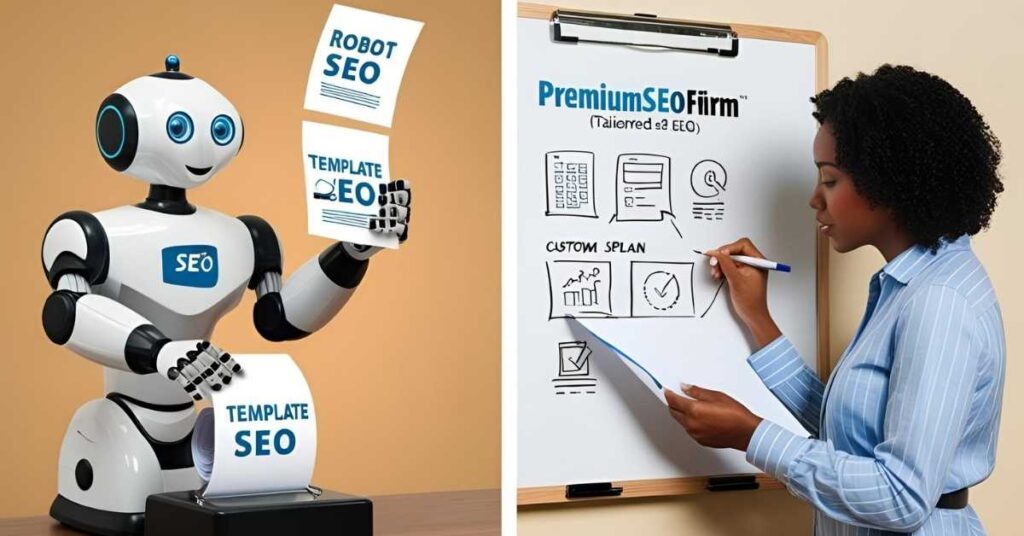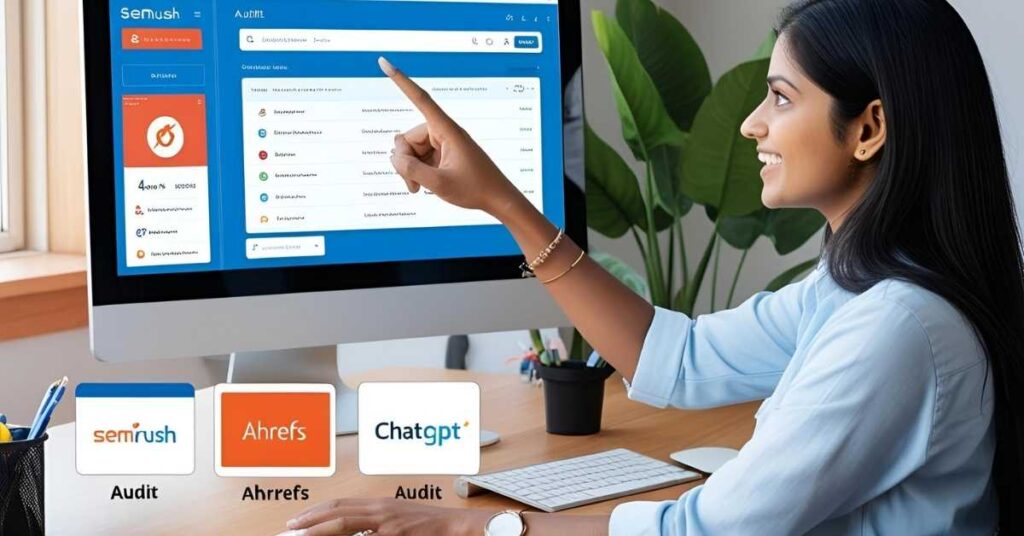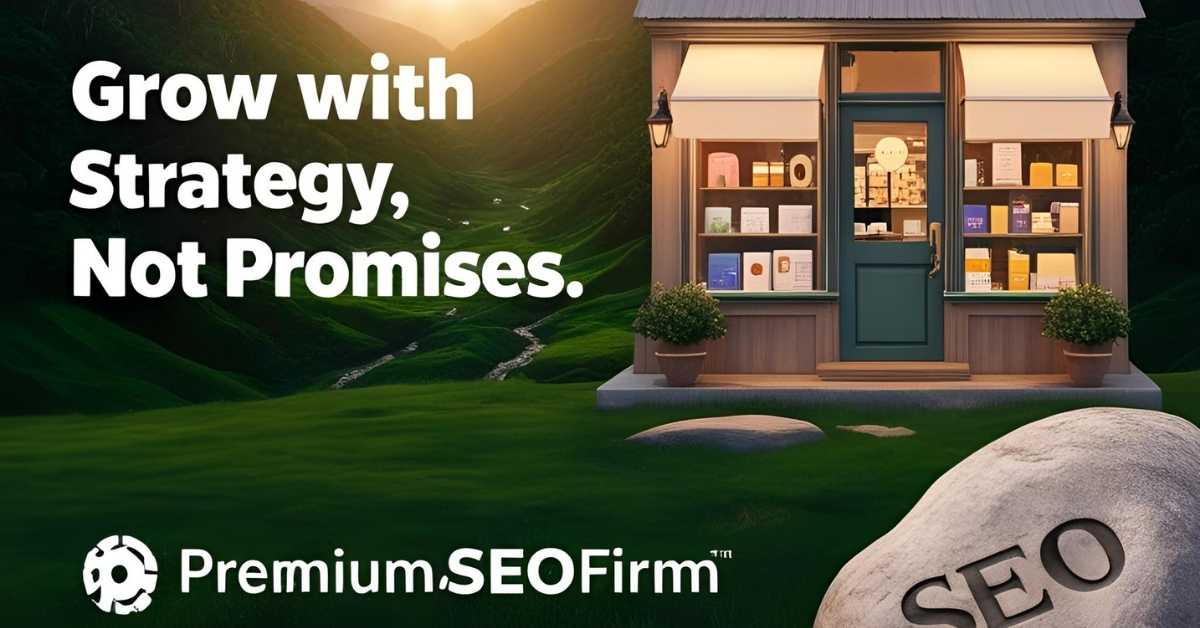Choose the Best SEO Services for Your Small Business in 2025
Running a small business is like sprinting while juggling. You’re managing staff, customers, inventory, marketing—and then someone says SEO is “critical.” Maybe you nod, maybe you Google it, or maybe (like a lot of folks I’ve worked with) you just go with the first agency that promises fast results. I’ve seen it happen more times than I can count.
One local café owner I worked with had been burned three times by firms that dazzled her with slick sales decks and vanished when the numbers didn’t move. What finally worked? A team that got to know her block, her customers, her voice—and actually stuck around.
When SEO lands, it’s not just a checkbox—it’s the part of your business that keeps working while you sleep. But in 2025—when everything shifts by the week—finding someone who gets it (and gets you) takes more than five-star reviews and a pretty website.
Supplement: What Makes SEO Services Actually Effective in 2025?
Before diving into services, here’s what truly drives SEO success today:
Key Drivers of Modern SEO Success
- Search Intent Matching: Pages must match why users search.
- Voice Search Optimization: Conversational, natural-language keywords are critical.
- Local Pack Visibility: Google Business Profiles can drive more clicks than websites.
- AI + Human Insight: Hybrid workflows outperform automated-only strategies.
- Clarity in Reporting: No jargon. Just clear cause-effect data.
Forget Templates—You Need SEO Strategy That Fits You

Most SEO Agencies start from a script. Audit the site. Add keywords. Build a few links. On paper, sure—it looks fine. But what works for a national skincare brand won’t move the needle for a local plumber whose customers need someone at 2 a.m.
A boutique clothing brand I worked with needed out-of-state customers, not foot traffic. She didn’t need noise—she needed structure. Smart internal linking, product pages that actually answered questions, and long-form content built around the way people searched for her kind of pieces. They used AI tools to shape content direction, but the actual choices—the angles, the tone, what got published—came from people who understood her audience. Three months in, traffic was up 25%. Not because of magic—just a plan that finally fit.
Template vs Tailored SEO Strategy
| Factor | Template SEO (One-size-fits-all) | Tailored SEO (Custom-fit) |
|---|---|---|
| Keyword Use | Generic, broad | Hyper-local, intent-based |
| Content Creation | Mass-produced | Aligned to customer questions |
| Reporting Format | Charts with little context | Clear before/after results |
| Communication | Monthly reports, little feedback | Regular check-ins, strategy reviews |
| Cost Flexibility | Fixed packages | Scalable, budget-conscious options |
| Results Over Time | Unpredictable | Gradual, compounding improvements |
Don’t Buy Promises. Buy Proof.
If someone guarantees you’ll “rank #1 in a week,” close the tab. Real SEO is more like getting in shape. There’s no six-pack by Tuesday. But you start to feel it—steady shifts, small wins that stack up.
I’ve seen too many clients come in with that worn-out look—the one you get after months of paying for “monthly strategy” and getting back a PDF with five charts you don’t understand. What changes the game is when someone sits down and says, “Here’s what we changed. Here’s what happened.”
No smoke. No “industry standard metrics.” Just cause and effect.
Clarity Isn’t Optional. Especially When You’re Budget-Conscious.
One bakery owner I worked with was so burned out by reports that she made a folder called “🤷♀️”. Her first agency sent her updates full of words like “referring domains” and “DA trends.” She gave up trying to make sense of it.
Her second team? Sent her two pages: before-and-after screenshots of where she ranked, keyword gains for “cupcakes near me,” and a note about three blog mentions they helped her land. She printed the email and taped it behind the counter.
And when it comes to budget, it’s the same story. I’ve seen local pet store owners sold on five-figure packages that include international or Global SEO. Why? Because the agency said it would help. The good ones? They start small. Month-to-month. Clear deliverables. If it works, you grow together. If it doesn’t, you’re not stuck.
Tech Is a Tool. Strategy Is the Engine.

People ask me: “Do I need all these tools?” Look, SEMrush, Ahrefs, Screaming Frog—these are powerful. But they don’t make decisions.
That same boutique owner from earlier? One morning her traffic dropped 15%. A different agency might’ve thrown five blog posts at it and hoped for the best. Her team? Crawled the site, found redirect issues buried in product filters, and fixed it by the weekend. The dip reversed.
AI-generated content is the same story. It can speed you up. But leave it unchecked and pretty soon your brand starts sounding like a chatbot who read one marketing book. Good teams use AI like a power tool—they know when to automate and when to pull out the pen.
Tools Are Not Strategy: Quick Tool Comparison Table
| Tool | Main Purpose | What It Can’t Do |
|---|---|---|
| SEMrush | Keyword & backlink analysis | Interpret business context |
| Ahrefs | Competitive SEO research | Write content that converts |
| Screaming Frog | Site health audits | Fix technical errors automatically |
| ChatGPT / AI | Drafting content at scale | Ensure tone, brand, and empathy |
⚠️ Remember: Tools assist. Humans decide.
Communication = Sanity
SEO doesn’t follow a script. Traffic can spike, flatline, dip, rebound—and silence from your agency during all that? That’s where trust goes to die.
One client I knew fired their agency after three months of canned reports and generic replies. Their new team gave them someone real. One voice. Weekly check-ins. Not fluff—updates. Sometimes the results were flat. But they knew what was happening, and why.
That kind of clarity changes everything.
Spot Red Flags Before They Burn You
It still surprises me how many agencies push junk strategies in 2025. One retail client had been paying for Cheap backlinks for link building and spun content that made no sense to actual humans. Their rankings tanked. Cleaning that up took months.
If someone’s vague about their process, dodges your questions, or calls their method “proprietary”—run. The honest ones will walk you through it. Even the boring parts.
Local or National? Match Scope to Strategy
Sometimes your best SEO agency is the one who’s eaten at your favorite lunch spot. Local SEO sevice providers often know which local news blogs matter, how to get your business listed on the town hall’s site, and when to mention the high school football team.
But if you’re shipping boxes across the country or scaling to three new regions, you might need a team with content, dev, and conversion pros under the same roof. Some of the best results I’ve seen came from smaller firms that moved fast, but knew when to say, “Hey, we’ve hit our limit—time to bring in more firepower.”
It’s not about size. It’s about fit.
It’s Not Just a Service. It’s a Partnership.
Picking a SEO agency is like picking someone to rebuild your car while you’re still driving it. You want someone who knows what they’re doing—but also someone who’s okay riding in the passenger seat when things get bumpy.
The ones that stick with you through the slow months, that tell you the truth even when it’s not fun, that show up when things break? That’s who you want. Rankings matter. But showing up consistently—that’s what drives everything else.
Before You Go…
Forbes highlighted in a 2025 report that hyper-targeting micro-local areas boosts local search rankings, underscoring the importance of detailed local SEO.
And with voice search now handling close to a third of all queries, it’s no longer about typing the right words. It’s about how people talk.
So take your time. Ask the awkward questions. Push for answers. And find someone who treats your wins like they’re theirs too. Because this isn’t just another vendor relationship—it’s a collaboration.
And if it works, you’ll start hearing that line from new customers: “I found you online.”
No big campaign. No drama. Just that.
And you won’t even remember the last time you checked your rankings.
What to Ask Before Hiring an SEO Agency
Before signing with any Complete SEO services provider, ask:
- “Can you show me case studies for a business like mine?”
- “How do you measure success beyond rankings?”
- “What are the first 90 days going to look like?”
- “Will I get a dedicated point of contact?”
- “Do you offer month-to-month or am I locked in?”
Still torn between going local or casting a wider net? I break down the real-world pros and cons of hiring a local SEO company in this post—no fluf, just what actually matters when you’re trying to grow.
Signs You’ve Found the Right SEO Partner
- They listen to your business model before recommending anything.
- They ask about your customers, not just your competitors.
- They don’t guarantee #1 rankings—they guarantee process and accountability.
- Their reports are clear enough that you’d show them to your staff.
- They explain what didn’t work—not just the wins.
SEO Red Flags to Avoid in 2025
- Vague phrases like “proprietary method” with no explanation
- “Guaranteed top ranking” within an impossible time frame
- Heavy reliance on AI content with no editorial layer
- No local strategy for a brick-and-mortar business
- Reports that feel more like performance theater than insight
Frequently Asked Questions (FAQ)
Q1: How long should I wait before I see results from a good SEO agency?
A: Expect early traction within 60–90 days, but meaningful results (rankings, conversions) often take 4–6 months depending on your niche and competition.
Q2: What’s the average cost for small business SEO in 2025?
A: Budget packages start around $300–$1,000/month. More tailored strategies often cost $1,500–$3,500/month, especially if content, local SEO, and technical fixes are included.
Q3: Is local SEO still worth it in the AI era?
A: Yes—even more so. Google’s algorithm favors proximity and context for local intent. Voice search + local optimization = discoverability goldmine.
Q4: Should I care about backlinks in 2025?
A: Quality over quantity. One contextual backlink from a local blog can outperform dozens of spammy directory links. Relevance and trust still win.
Q5: Can I do SEO myself instead of hiring an agency?
A: Yes—especially early on. But scaling SEO means staying on top of algorithm changes, analytics, competitor trends, and tech audits. Most businesses eventually need expert help.
Bonus: Sample KPI Table to Use With Your Agency
| Goal Type | KPI Example | Target Timeline |
|---|---|---|
| Visibility | Organic impressions + local pack presence | 30–60 days |
| Engagement | Time on site, bounce rate, CTA clicks | 60–90 days |
| Conversion | Form fills, calls, online orders | 90–120 days |
| Authority Building | Backlinks from relevant domains | Ongoing |
| Technical Health | Crawl errors, page speed, mobile UX | 30–45 days per update |
